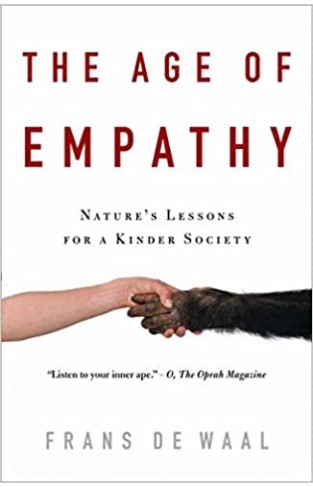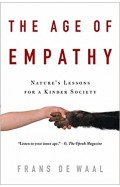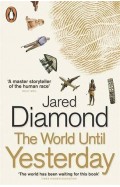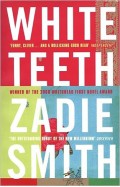The Age of Empathy: Nature's Lessons for a Kinder Society Paperback
By: Frans de Waal
-
Rs 3,095.00
Due to constant currency fluctuation, prices are subject to change with or without notice.
Are we our brothers' keepers? Do we have an instinct for compassion? Or are we, as is often assumed, only on earth to serve our own survival and interests?
By studying social behaviors in animals, such as bonding, the herd instinct, the forming of trusting alliances, expressions of consolation, and conflict resolution, Frans de Waal demonstrates that animals–and humans–are "preprogrammed to reach out." He has found that chimpanzees care for mates that are wounded by leopards, elephants offer "reassuring rumbles" to youngsters in distress, and dolphins support sick companions near the water's surface to prevent them from drowning. From day one humans have innate sensitivities to faces, bodies, and voices; we've been designed to feel for one another.
De Waal's theory runs counter to the assumption that humans are inherently selfish, which can be seen in the fields of politics, law, and finance. But he cites the public's outrage at the U.S. government's lack of empathy in the wake of Hurricane Katrina as a significant shift in perspective–one that helped Barack Obama become elected and ushered in what perhaps could become an Age of Empathy. Through a better understanding of empathy's survival value in evolution, de Waal suggests, we can work together toward a more just society based on a more generous and accurate view of human nature.
Written in layman's prose with a wealth of anecdotes, wry humor, and incisive intelligence, The Age of Empathy is essential reading for our embattled times.
"An important and timely message about the biological roots of human kindness."—Desmond Morris, author of The Naked Ape
Are we our brothers' keepers? Do we have an instinct for compassion? Or are we, as is often assumed, only on earth to serve our own survival and interests?
By studying social behaviors in animals, such as bonding, the herd instinct, the forming of trusting alliances, expressions of consolation, and conflict resolution, Frans de Waal demonstrates that animals–and humans–are "preprogrammed to reach out." He has found that chimpanzees care for mates that are wounded by leopards, elephants offer "reassuring rumbles" to youngsters in distress, and dolphins support sick companions near the water's surface to prevent them from drowning. From day one humans have innate sensitivities to faces, bodies, and voices; we've been designed to feel for one another.
De Waal's theory runs counter to the assumption that humans are inherently selfish, which can be seen in the fields of politics, law, and finance. But he cites the public's outrage at the U.S. government's lack of empathy in the wake of Hurricane Katrina as a significant shift in perspective–one that helped Barack Obama become elected and ushered in what perhaps could become an Age of Empathy. Through a better understanding of empathy's survival value in evolution, de Waal suggests, we can work together toward a more just society based on a more generous and accurate view of human nature.
Written in layman's prose with a wealth of anecdotes, wry humor, and incisive intelligence, The Age of Empathy is essential reading for our embattled times.
"An important and timely message about the biological roots of human kindness."—Desmond Morris, author of The Naked Ape
The Age of Empathy: Nature's Lessons for a Kinder Society Paperback
By: Frans de Waal
Rs 3,095.00 Ex Tax :Rs 3,095.00
Zubin Mehta: A Musical Journey (An Authorized Biography)
By: VOID - Bakhtiar K. Dadabhoy
Rs 840.00 Rs 1,050.00 Ex Tax :Rs 840.00
Upheaval : How Nations Cope with Crisis and Change
By: Jared Diamond
Rs 1,345.50 Rs 1,495.00 Ex Tax :Rs 1,345.50
The Rise And Fall Of The Third Chimpanzee - (PB)
By: Jared Diamond
Rs 1,035.00 Rs 1,150.00 Ex Tax :Rs 1,035.00
The World Until Yesterday: What Can We Learn from Traditional Societies?
By: Jared Diamond
Rs 3,795.00 Ex Tax :Rs 3,795.00
Upheaval : How Nations Cope with Crisis and Change
By: Jared Diamond
Rs 1,345.50 Rs 1,495.00 Ex Tax :Rs 1,345.50
The Rise And Fall Of The Third Chimpanzee - (PB)
By: Jared Diamond
Rs 1,035.00 Rs 1,150.00 Ex Tax :Rs 1,035.00
The World Until Yesterday: What Can We Learn from Traditional Societies?
By: Jared Diamond
Rs 3,795.00 Ex Tax :Rs 3,795.00
No recently viewed books available at the moment.
Zubin Mehta: A Musical Journey (An Authorized Biography)
By: VOID - Bakhtiar K. Dadabhoy
Rs 840.00 Rs 1,050.00 Ex Tax :Rs 840.00
The Age of Empathy: Nature's Lessons for a Kinder Society Paperback
By: Frans de Waal
Rs 3,095.00 Ex Tax :Rs 3,095.00
Upheaval : How Nations Cope with Crisis and Change
By: Jared Diamond
Rs 1,345.50 Rs 1,495.00 Ex Tax :Rs 1,345.50
The Rise And Fall Of The Third Chimpanzee - (PB)
By: Jared Diamond
Rs 1,035.00 Rs 1,150.00 Ex Tax :Rs 1,035.00
The World Until Yesterday: What Can We Learn from Traditional Societies?
By: Jared Diamond
Rs 3,795.00 Ex Tax :Rs 3,795.00














-120x187.jpg?q6)





-120x187.jpg?q6)
-120x187.jpg?q6)






-120x187.jpg?q6)



-120x187.jpg?q6)